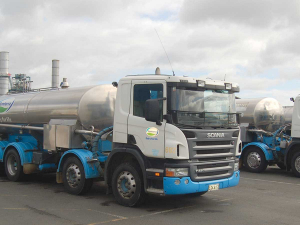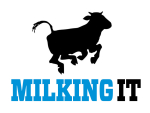The country's second largest milk processor Open Country Dairy (OCD) is making a push for more suppliers.
In a bid to lure suppliers from Fonterra, OCD is also offering a new milk payment option, similar but superior to the co-op's, for new and existing Waikato suppliers.
Its new 'milk price plus' initiative guarantees farmers 5c/kgMS more than they would have earned on Fonterra's farmgate model and a better advance rate.
OCD chief executive Steve Koekemoer says the company is putting two payment options before Waikato farmers, because some farmers are used to working around traditional farmgate milk price models based on the markets.
"We currently pay our farmers quarterly in full, which follows the market pricing and delivers cash back to the farmers quicker. We have always believed that farmers deserve to get their money back faster," he says.
OCD, which has recently commissioned a new cheese capacity upgrade and lactose plant at its Waharoa facility, needs more milk to fill it.
Another Waikato milk processor, Yashili, is also in the market looking for new suppliers of cow, goat and sheep milk. The Chinese company operates a plant at Pokeno making milk powders and cream, mostly for China.
On its website, the company is inviting interest from Waikato farmers "to be part of one of the world's leading producers of premium products".
For the first time, Yashili had a site at the National Fieldays.
Singapore conglomerate Olam is on track to process milk at its new Tokoroa plant in June next year. The company is actively trying to sign up farmer suppliers.
In Otorohanga, Happy Valley Milk is trying to raise funds to build a new plant.
Former Federated Farmers president Andrew McGiven told Rural News that it does appear that competition is heating up again in the Waikato.
McGiven, a Fonterra supplier, says competition is "a nice option for farmers if they're in the right districts". However, he's worried about Fonterra losing too much milk to rival processors.
"I think if Fonterra's milk supply becomes too fragmented, then as an industry we may lose a co-op with the ability to set the national milk price, and if this role/responsibility falls to a corporate processor then we may well see reduced milk premiums for farmers, much like the Australian dairy industry.
"But I also think that we have a way to go before we have to consider that possibility."
McGiven says he hasn't been approached by any processor yet but he heard the Open Country advertising on the radio.











